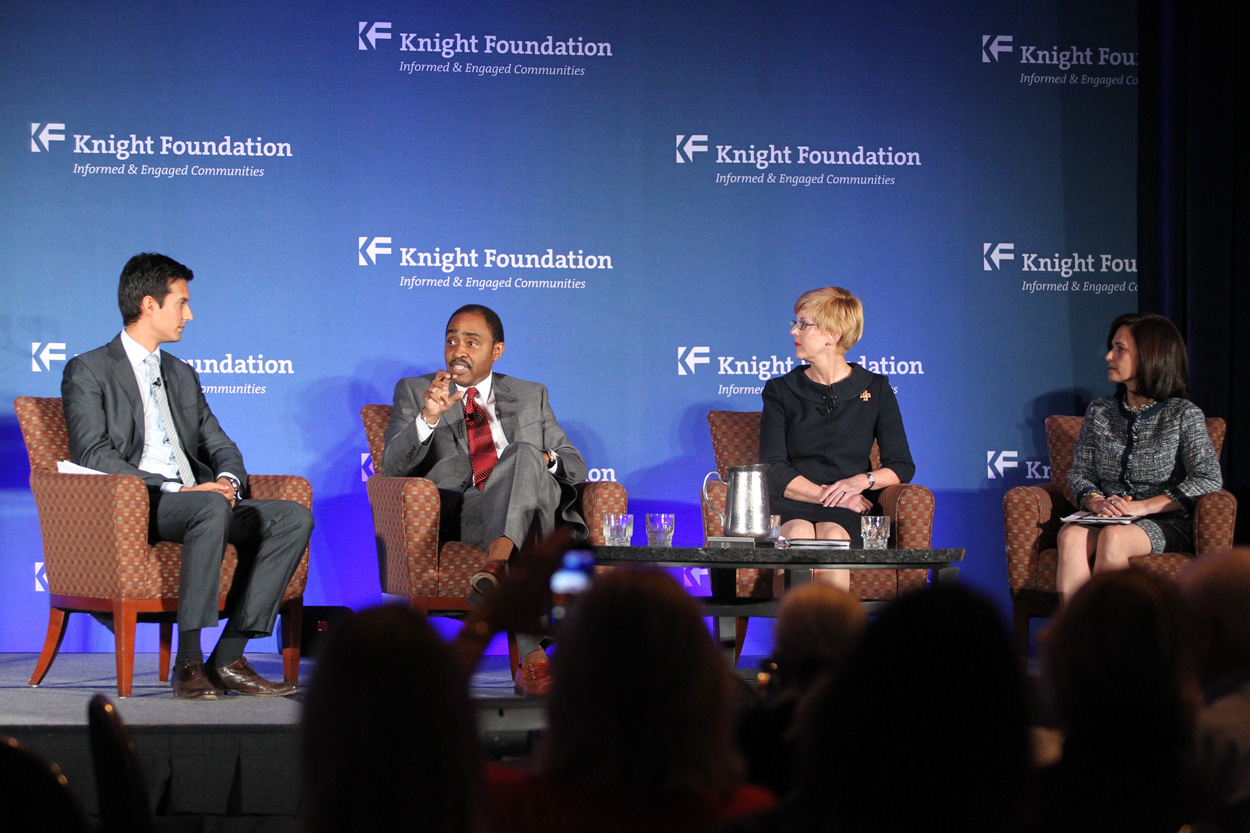
Six lessons on how community foundations met #infoneeds, empowered citizens
As mainstream media continues its fast-paced change, community foundations are adapting aggressively to fill information needs. Leaders from three community foundations — the Silicon Valley Community Foundation, the Central Carolina Community Foundation and the Greater New Orleans Foundation — shared a few ways they took on a bigger role in engaging their citizens in the news and information space.
BUILD CREDIBILITY FIRST Don’t just announce to a community “We’re here” out of nowhere, said the Central Carolina Community Foundation’s JoAnn Turnquist. Engage with stakeholders, first. To build credibility in its community, the Central Carolina Community Foundation took a personal focus and built that effort into a role in broader civic conversations by starting with a digital literacy project aimed at senior citizens in 11 counties in North Carolina.
Since senior citizens were relying on shrinking print newspapers, the group wasn’t accessing news and information in a key way it was being delivered — online. So the foundation recruited students, trained them on how to work with seniors and tech, and students became digital coaches. The success of the training project was a big boost to the foundation. “It really did propel us into having a seat at the big kids table,” said Turnquist. Now, in areas it cares about — land use or education or others — the foundation has credibility as an organization that can bring people together.
MAKE UP FOR A SMALL STAFF BY LEVERAGING PARTNERSHIPS Hampered by a small staff? No problem. Turnquist says foundations should leverage relationships with mainstream press, colleges and other civic organizations. “We do have the ability to bring folks together and leverage their strengths,” said Turnquist. In New Orleans, as the Times-Picayune cut its publishing schedule and its staff, the Greater New Orleans Foundation stepped up by partnering with a new investigative non-profit news source, The Lens. “You really have to address that craving hunger for news and information,” said the Greater New Orleans Foundation’s Josephine Everly.
ADDRESS THE DIVERSE AUDIENCE Engaging communities to create positive change is “central to our business,” said the Silicon Valley Community Foundation’s Emmett Carson. But communities can be quite diverse. In the Bay Area, Carson’s foundation was explicit in its planning and budgeting for how to reach out to Latinos. “We have to think at each instance that there are communities where English is the second language. We have bilingual, trilingual materials, and we also recognize that people learn in different ways.” Young Latinos, for example, rely more heavily on mobile devices and radio. For its initiative to increase voter registration, the foundation focused on reaching out via mobile and public radio to get involvement from Latinos. EDUCATE YOUR DONORS Successful organizations are now selling their donors on how funding the media information system is vital. Foundations are now going to sophisticated donors with the argument that they need more data-sharing and a more informed citizenry to make changes. “We need to expand our role as conveners,” said Everly. Community influencers come in and give feedback that then informs their programming. ASK FOR HELP Don’t be averse to using new tools, bringing in diverse groups and committing to keep learning. Now that the foundation field is changing and involved with news and information more broadly, the Silicon Valley Community Foundation has been focused on getting more literate in the latest tech tools and learning the goals and processes of partner organizations to ensure they’re being responsive. DON’T LEAVE THE NON-TECH AUDIENCE BEHIND As foundations move aggressively into digital media, don’t forget the fundamental charge of informing all citizens, like the ones who may not necessarily be plugged in. “We don’t forget that many of the citizens we serve don’t even have basic computer skills or access to broadband,” said Turnquist. “We want to be mindful that we don’t leave people behind.” Elise Hu is a digital editor at NPR and blogging this event for Knight. You can follow the Media Learning Seminar on Twitter @knightfdn or with the hashtag #infoneeds.
Recent Content
-
Communitiesarticle ·
-
Communitiesarticle ·
-
Communitiesarticle ·


